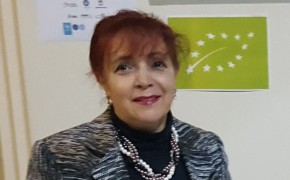Creation of a Regional Committee for dialogue between administration and businesses from different territorial levels in a smart specialization sector – IT&C
European Commission has launched, in 2016, a specific initiative to help less developed regions (North-West, specifically) catch up. Its aim was to analyze what holds back economic development in the region and to provide recommendations and assistance on how to unlock its growth potential. One reason laying behind was the lack of effective and efficient dialogue between the business environment and public administration to jointly draft and push forward public policies supporting businesses and economic growth. Continuous dialogue and real cooperation could generate successful public-private partnerships, as well as synergies between initiatives/investments generated on one side by the public and on the other by the private sectors. NW Region indicated their primary focus on business ecosystem with the aim to foster excellence and enabling businesses in the IT&C (pilot) to contribute to economic growth and to create jobs. In connection with the RIS3, horizontal aspects were addressed, together with a better coordination between national, regional, and local priorities and interventions. One of the actions targeted the cooperation of businesses with public administration and sectorial networks and the creation of a policy mix generating vertical and horizontal cooperation in order to boost the development of public policies that would have a positive impact on economic development through the creation of a Regional Committee for dialogue between different territorial levels.
Resources needed
At least 7 direct experts involved in the co-organization representing: NW RDA, DG Regio, JRC, DG Region AMI expert
Evidence of success
The Regional Committee for Dialogue provided a framework for collaboration between different local & regional actors. It was noticeable that there was a strong degree of consensus between all parties as to where the needs and challenges lie which demonstrates a shared appreciation of the challenges facing the region, but is also testament to the strong networks already present across the region in this sector. The action gave good examples of cooperation between actors from different territories
Difficulties encountered
One of the biggest challenges is related to the availability of members, as they are involved in many projects and have limited time for voluntary activities.
Potential for learning or transfer
This good practice addresses the collaboration between businesses and other stakeholders, including public administration to develop a RIS3 sector and to fulfill the RIS3’s objectives. It could inspire other regions to create committees dedicated to different RIS3 sectors. The Regional Committee for Dialogue started to develop instruments and mechanisms of cooperation regarding the generation and formulation of public policies oriented towards supporting business environment, creating public-private partnerships, creating synergies and complementarities between projects developed by the public administration on one side and private companies, on the other. The newly created structure gathered, analyzed needs to be answered with public policies; selection of bottleneck to be addressed with policy initiative and formulated one policy initiative addressing a key bottleneck. Also, the action targeted the development of mechanisms and framework to strengthen synergies across levels.
Please login to see the expert opinion of this good practice.
Tags: Cooperation, Governance, RIS3, Smart specialisation








